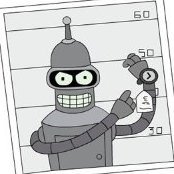Bhikkhu Buddhadasa
-
Recently Browsing 0 members
- No registered users viewing this page.
-
Topics
-
-
Popular Contributors
-
-
Latest posts...
-
3
I had rules of engagement. Does your Pattaya generation have any?
And I, every apologetic for my bone-dry wit. Alas.... -
39
Can someone explain the allure of pattaya to me?
It's the easy to purchase women and bars. Thailand isn't third world. It's a developing country, although behind in many things. Third world means it's a country not aligned with Nato. -
13
Bombshell: Obama & Crew knew all along, Russia Russia was a hoax.
so hard to keep up, who is still good and who is bad now, again, and is there real proof or is this just some bs? Also, is this the I shot my dog lady or the got struck by lightning hair lady? -
13
Emails Reveal FBI Invented Trump Case Out Of Nothing / Secret Meeting Open Docs Floodgate
Nope. No pee tape as well. -
39
-
138
What Would Make You Leave Thailand, Permanently?
Generally speaking, not always - yes.
-
-
Popular in The Pub




.thumb.jpeg.d2d19a66404642fd9ff62d6262fd153e.jpeg)





.thumb.jpg.b2b04c85be01168bf6f7f7cca13fe0bf.jpg)

Recommended Posts
Create an account or sign in to comment
You need to be a member in order to leave a comment
Create an account
Sign up for a new account in our community. It's easy!
Register a new accountSign in
Already have an account? Sign in here.
Sign In Now